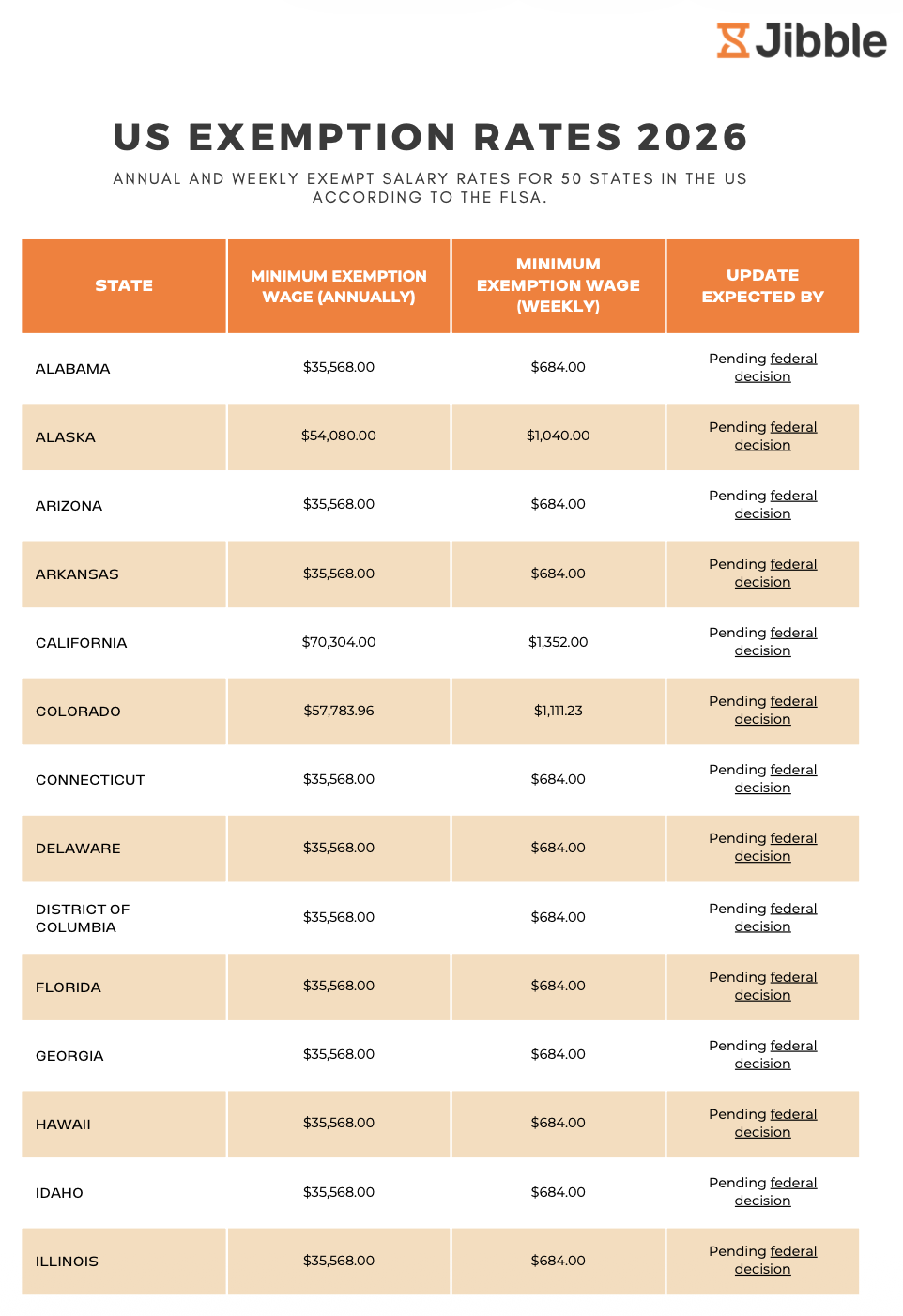US Overtime Exemption Salary Threshold
We created this US Overtime Exemption Salary Threshold poster for 2026 to show the minimum exempt salary levels by state, based on the latest FLSA rules.
What Is the Overtime Exemption Salary Threshold in the US?
The overtime exemption salary threshold sets the minimum pay an employee must earn to qualify as exempt from overtime under the Fair Labor Standards Act (FLSA).
Employees who earn below this threshold usually qualify for overtime pay when they work more than 40 hours in a workweek.
How Does the FLSA Determine Overtime Exemption in 2026?
Under the FLSA, salary alone does not decide exemption status. Employees must meet both salary requirements and job duties tests to qualify as exempt.
In 2026, the standard federal exemption level remains $684 per week ($35,568 annually) for most states, unless a state sets a higher threshold.
Which States Have Higher Overtime Exemption Thresholds in 2026?
Several states stand out with higher exemption salary requirements, including:
- California
- Washington
- New York (with different thresholds for NYC and surrounding counties)
- Colorado
- Maine
These higher thresholds reflect stricter state labor standards that go beyond federal rules.
Are There Special Overtime Exemption Rules for Certain Employees?
Yes. Some employees follow different overtime exemption rules based on their role, pay structure, or industry.
This includes highly compensated employees, computer employees paid on an hourly basis, and certain executive or professional roles that fall under state-specific rules. Some industries, such as motion picture production or agricultural work, also apply separate exemption standards.
In Wisconsin, for example, executive and professional employees follow different exemption thresholds.
Where Can I See All US Overtime Exemption Salary Thresholds for 2026?
Download the US Overtime Exemption Salary Threshold 2026 poster to view:
- Weekly and annual exemption salary levels
- State-by-state breakdowns
- Notes on pending federal updates
All rates align with current FLSA guidance and state labor standards.

Jibble’s free
US overtime exemption salary threshold poster


